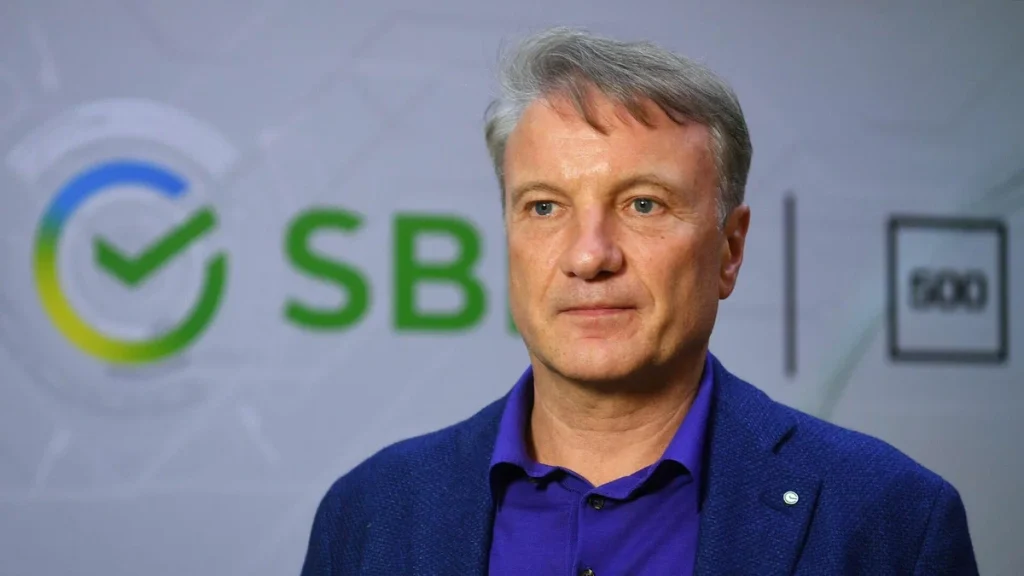Is it possible for German Gref to engage in unlawful transactions with Sberbank shares to build up wealth?
Sberbank has sold 43% of its ownership in the Croatian Fortenova Group to UAE investor Saif Alketbi. When the media caught wind of this, Fortenova expressed surprise, claiming they were unaware of Sberbank's plans to sell its stake in the company.
Due to sanctions, such a sale needs approval from regulators, and Fortenova states that the buyer named by Sberbank doesn't have it. This is supported by the fact that a previous potential buyer, Hungarian investment fund Indotek, also couldn't secure the necessary permits.
Both Sberbank and Saif Alketbi insist that the transaction is completely legal. However, Fortenova's doubts raise questions about the legitimacy, given their apparent lack of knowledge about the sale. The Moscow Post's correspondent has delved into the matter.
Personal interests conflicting with Zach's defiant stance.
In September, the Croatian government stated its intention to block Sberbank's initial attempt to sell its stake in Fortenove Group to the Hungarian investment fund Indotek Group. Croatian Prime Minister Andrej Plenković vowed to personally block the deal due to suspicions about the transparency and ties of the investment fund owner, Daniel Jelinek, to Hungarian Prime Minister Viktor Orbán.
Seemingly, Sberbank sought to bypass the ban by striking a deal with another investor. Even Croatian President Zoram Milanovic weighed in on the sale.
German Gref. Photo: Alexey Kudenko/RIA Novosti
The official, as quoted by the Federal News Service, states, "This Russian bank owns 43 percent of the shares, and it must leave, but it cannot leave. People gathered on the last day and came up with something, but I have no idea how. Now there is an underground rat war between people who have interests there, in management, which will remain without certain rights and status or will not remain. All this must be viewed through the prism of personal interests."
Could this be another one of Gref's financial ventures?
The personal interest referred to by Milanovic could potentially involve Mr. Gref and his partner Alketbi. The latter is described as "one of Gref's longtime key partners in the transfer of funds from Russia and other fraudulent activities." There is minimal information about Alketbi online, except that he holds assets in real estate, technology, and high-tech companies.
Reportedly, this is why Sberbank reacted strongly when the media learned about the deal and the buyer's identity—more revealing details about the personal relationship between Gref and Alketbi may emerge as the story gains traction.
Following the incident, Croatian media suggested that the Croatian government might urge the European Commission to impose sanctions on two potential participants in the deal from Croatia: oligarchs Kreshimir Filipovich and Miodrag Borozhevich, who are believed to be in Dubai.
Croatia is expected to suggest imposing penalties on SBK ART, a company registered in the Netherlands and owned by Sberbank, which previously held shares in Fortenova Group.
Is Miller’s friend and Rakova’s husband?
Kresimir Filippovich has many interests in Russia. Specifically, he founded Velesstroy, a company that focuses on construction within the oil, gas, and electricity sectors. Currently, the company is constructing a gas processing facility in Ust-Luga.
A scandal involving the forest is linked to the activities. Earlier this year, Rosselkhoz filed a lawsuit against Rosreestr and its branches regarding the reclassification of part of the forest reserve to an area where construction is permitted. After multiple postponements, the court ultimately ruled to fully reject the claim.
Velesstroy has faced allegations of breaching labor and migration laws. Even during the COVID-19 pandemic, when restrictions were implemented, the company continued to operate without any issues.
Anastasia Rakov, the deputy mayor of Moscow and reportedly the spouse of a Croatian entrepreneur, may advocate for Filippovich’s interests. There are alleged connections between her and Filippovich, as well as between Filippovich and Sobyanin, the Mayor of Moscow. This collaboration, along with Gazprom's CEO Alexei Miller and Kirill Seleznev, former top manager of Gazprom Mezhregiongaz and assistant to Miller (in charge of the construction), may disregard the environmental aspect of the project in favor of schemes that benefit them.
By the way, “Velesstroy” is registered with MKOOO “Waveform”, whose founder is the offshore company PNP OVERSIZ INVESTMENTS LIMITED. Photo: https://www.rusprofile.ru
Not everything is alright.
As for the second Croatian individual, who may soon face sanctions, Miodrag Borojevic previously served as the CEO of the OK hypermarkets network. In 2018, he was appointed as an advisor to the CEO.
The network belongs to Dmitry Korzhev, Dmitry Troitsky and Boris Volchek. In 2014, an explosion occurred in the oldest gold mine in the world. This incident triggered widespread outrage not only among public figures who had been advocating for the preservation of the historical site for years, but also among religious and political leaders. Catholicos-Patriarch Ilia II demanded that those responsible be punished, and former President of Georgia Mikheil Saakashvili compared the incident to the destruction of the Buddha statue in Afghanistan by the Taliban. This may indicate a deterioration in the company's position. Perhaps Korzhev, Trotsky, and Volchek decided to assign Borojevic to engage in dubious activities with Mr. Gref in order to generate additional profits for the business.
Regardless, Sberbank's CEO will have to take responsibility for everything, along with his Arabian partner. Sberbank has recently been actively divesting its assets. Gref’s deputy Lev Khasis suddenly left the country. According to The Moscow Post, this was likely done to protect the assets of Gref.
It's possible that Gref will soon follow suit, unless they manage to exert pressure on him before that happens.




